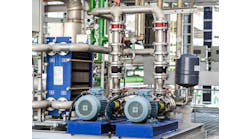I recently read an article that talked about President Obama's potential plan to lengthen the school day and/or eliminate summer breaks for American kids. Based on the fact that many U.S. kids are falling behind their peers in other countries when it comes to test scores, it may be time the country rethought its approach to education.
Obviously, there is a lot of fine tuning to be done before any action takes place. And this debate is hardly a new topic. But I did find it interesting that the current schedule is based on a long-ago need for kids to be available to help tend the crops and livestock on family farms. While that still may be the case, it is now the exception – not the rule.
Shortly after reading that article, I stumbled upon an interesting Web site dedicated to "Inspiring Girls in Science and Engineering." The Canadian-based site, www.CyberMentor.ca, is an online mentoring program aimed at girls, ages 11 through 18. The program matches girls with women who have chosen careers in science, math, engineering, or technology. Together they explore careers and questions about life as a scientist or engineer.
To help encourage girls to enter science-based careers, the site features interesting news items from sites like ScienceDaily.com. In fact, one article, We Are All Mutants, even had me clicking to learn more.
Visiting the site reminded me of my own interest in science at a young age. I remember how excited I was to discover that the chemical makeup of imposter perfumes was very similar to their pricey counterparts.
My physics teacher, Mr. Van Arsdale, opened the lab up after school for kids to become mad scientists. We could choose our own projects, but the project had to be proved or disproved by science. Wanting to get my hands on the centrifuge, I opted to figure out if my wealthy classmates were wasting their money on designer perfumes. My test proved that they were. . . and it also showed me how cool science really was.
I would have never learned this in the allotted time for my regular physics class – there was barely enough time to cover the basics in our textbooks. But dedicated time after school introduced me to a whole new world.
Whether or not you think American kids need more schooling, I am certain you have a fond memory of how your interest was sparked in science and engineering. I'd love to hear how you landed in the career you have today.
I showed you mine – now you show me yours!
Traci Purdum
Senior Digital Editor
